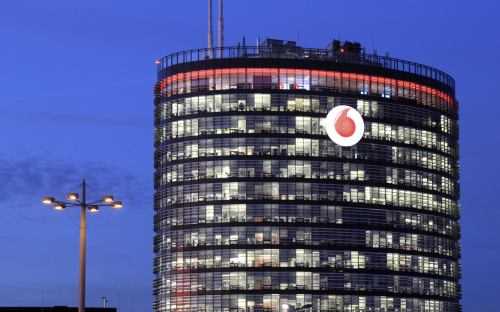In the UK, 27% of the top chief executives opted for an MBA degree; 24% in France.
The data show that studying at an elite business school could be your best bet for becoming a CEO.
Around 50% of the chief executives of SBF 120 companies, the index of France’s 120 largest firms, graduated from one of four top schools: INSEAD, HEC Paris, École nationale d'administration or École Polytechnique.
INSEAD, which has campuses in France, Singapore and Abu Dhabi, has several prominent CEOs. These include Tidjane Thiam at Swiss investment bank Credit Suisse; Helge Lund of oil major BG Group; and António Horta-Osório of UK lender Lloyds Banking Group.
HEC Paris’ star alumni include Jean-Paul Agon, CEO of cosmetics group L’Oréal; François-Henri Pinault, the chief executive of luxury brand Kering; and Bruno Lafont, industrial champion Lafarge’s chief.
In the US, 28% of the Fortune 100 chiefs graduated from seven top universities: Harvard, Stanford, Pennsylvania, Berkeley, Columbia, MIT, and Princeton.
Harvard Business School has seven CEOs at top European companies alone. These include Vittorio Colao at telecoms group Vodafone, and Sir Martin Sorrell of WPP, the world’s largest advertising group.
Columbia’s CEO alumni are James Gorman, at US bank Morgan Stanley, and César Alierta, at telecoms group Telefónica, among others.
Stanford counts Carlos Brito, CEO of brewer Anheuser-Busch InBev, as alumni. Berkeley graduated Joseph Jimenez, the chief of pharma group Novartis, and Shantanu Narayen, head at software company Adobe.
Meanwhile, 24% of the UK’s FTSE 100 CEOs graduated from either Oxford or Cambridge Universities.
Heidrick & Struggles’ data also show that more top business leaders are opting for postgraduate degrees. Around 12% more UK chiefs have a masters or doctorate than two years ago. In Germany, the figure is 7%, although engineering and doctoral degrees are dominant in the Dax 30 and MDax 50 indexes, rather than MBAs; the US 5%; France 3%.
The data echo similar findings published by other researchers this year, which show top business schools are continuously producing the top senior executives.
For IESE Business School in Barcelona, for example, four of the main Spanish stock index’s 35 companies are led by its alumni, such as Rafael Villaseca Marco, chief executive of Gas Natural, the Spanish energy group.
Elsewhere in the US, Duke University’s Fuqua School graduated Tim Cook, Apple’s CEO; NYU Stern’s alumni include Gerald Hassell, chief of the bank BNY Mellon; and Chicago Booth lays claim to Satya Nadella, who leads Microsoft.
Heidrick & Struggles’ data also show that the international experience accrued on an MBA program may prove beneficial.
Luis Urbano, managing partner for Europe and Africa, said: “The cross-cultural intelligence that comes with international diversity is increasingly important for companies operating in today’s volatile and fast-moving global business environment.”
However, the data reveal the gaping gender divide at the world’s top public companies. The US has nine women at the helm of Fortune 100 companies; the UK has just five female CEOs in the FTSE 100, although the number on boards has risen.
Commenting on news that 26% of boardroom positions in the FTSE 100 are held by women, Lady Barbara Judge CBE, chairman of the Institute of Directors, said: “Employers must make sure they are supporting women throughout their careers, particularly around issues like childcare. Women that make it to the top must also help others follow in their footsteps, by acting as role models and mentors.”
RECAPTHA :
00
36
71
8a








